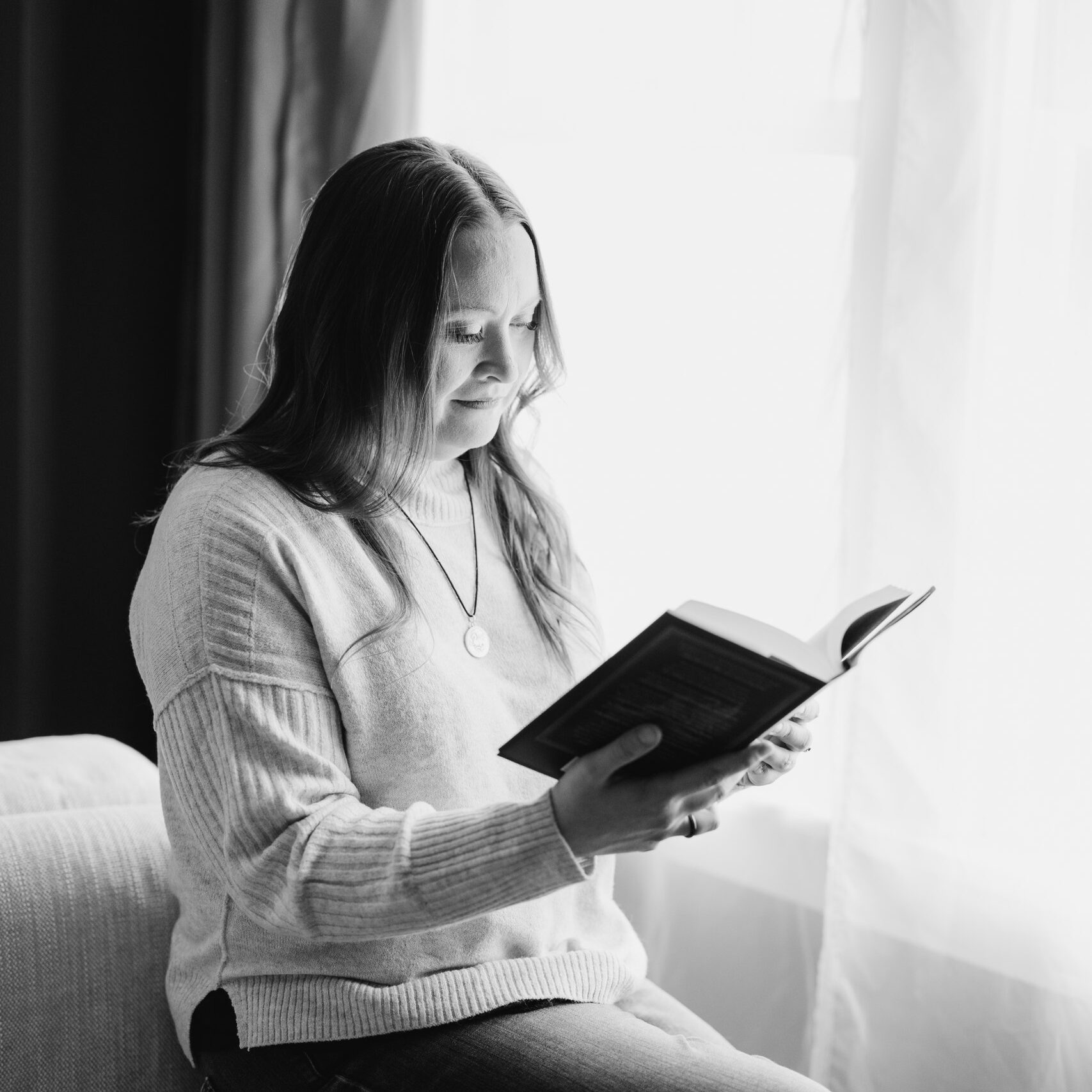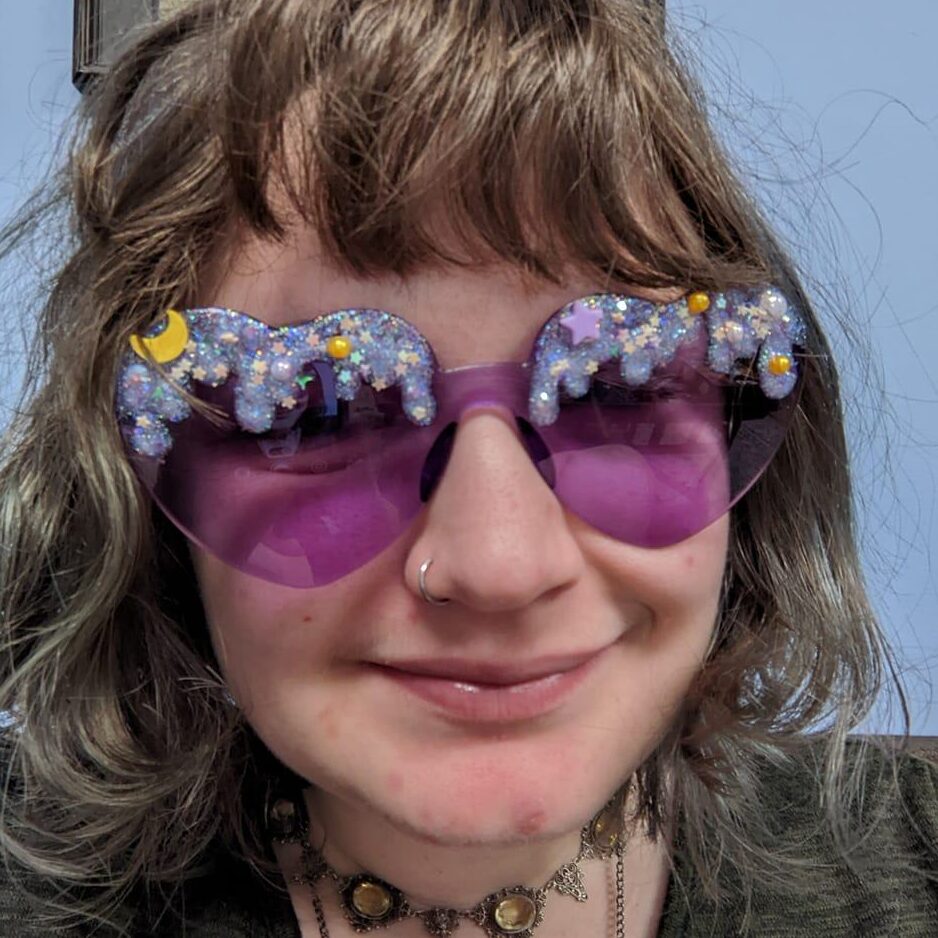A hundred years in the future, Complete Life Management (CLM) is selling perfection in the form of the latest technologically enhanced bionic body, the Apogee. As an elite runner and inadvertent spokesperson for humanism, NYPD Detective Naomi Gate has eschewed vanity upgrades. However, if she hopes to survive in New York City’s fierce criminal Underground and find her wayward brother, she has no choice but to undergo an illegal body transfer.
Plunging into the Underground’s den of black-market body modifications and bionic hit squads, it turns out to be the first of several body transfers. And as the stakes rise, Naomi fears the price for saving her brother may be the thing she values most—her own humanity.
April McCloud, author of The Switch, spoke with us about technological body modifications, both as science fiction and as science fact, and her own experience receiving and living with a medical implant. This interview has been edited and condensed for clarity.
Your sci-fi book, The Switch, explores transhumanism in how technologically advanced bodies have become. This is a fascinating subject, particularly when discussing disability. I’d love to hear about your exploration of how sci-fi tech explores the borders between what is helpful versus what is horrific in terms of body modification.
In The Switch, I wanted to explore a world with a broken health care system where body modifications have been labeled “upgrades/enhancements.” This type of marketing brings a host of problems, for everyone in society. For the majority, their bodies are commercialized and found lacking. For those with (predominantly physical) disabilities, their actual need of the prosthetic/bionic part is glossed over in pursuit of capitalistic gain. For instance, I have a character who loses a hand, but is forced by insurance to accept a hook as a replacement, despite more advanced options existing.
During my research into the life of Tilly Lockey, a British teen who lost both hands below the elbow as a child, I found my pessimistic fictional world was reality for many people—the most frightening thing about writing science fiction is when you inadvertently write science fact. Tilly recounted her time with hooks for hands and other severely lacking prosthetics, before she found her way to bionic arms. Now, she is a spokesperson for disability and how being different makes us unique. She bedazzles her bionic arms to bring attention to them, rather than hide them.
During one interview, though, she said that people will look at her bionics and wonder how they can get robot arms. It chilled me to my core. I truly hope my book will never become that true.
What inspired The Switch? How did the story develop?
I had written a speculative fiction novel where it is possible to buy and sell lives, but I thought I could push it further. Being able to completely swap out a body seemed the next evolution of the idea.
Around that time I had my surgery to implant a defibrillator into my chest, and I had to come to terms with my relationship with my new internal, durable medical equipment. Needless to say, that was a journey, but perhaps the biggest inspiration for how being disabled became interwoven into the fabric of this book was how my insurance company reacted afterward. I had been on a high deductible plan and hit my deduction just before my triple digit price tag surgery—scheduled on December 28th. The letters I got from them afterward were wild, including, and I do not exaggerate, one that said they would not pay for my “observation-level care” post surgery because my observation-level care showed that I was fine…
There are things so unbelievable in this world, we as authors simply cannot make them up.
The Switch comes across as the cyberpunk kind of sci-fi in its low-life meets high tech, with nior-esque crime settings and plot points. What drew you to this specific subgenre?
As a writer, I tend toward a sort of intellectual alchemy, where I blend things that, honestly, probably defy the laws of nature. However, it yields interesting results, and that amuses and emboldens me to keep making genre-bending creations. For The Switch specifically, I wanted someone who had a reason not to go into the criminal underground, so a cop was a natural choice. As for high-tech living, I added monks and Zen Buddhism into the mix as a way of paying homage to the duality of a technological vs. organic life and finding a way forward that accepts both.
What got you into writing? Have you always been into science fiction?
I used to role play as a teenager because I loved reading fantasy and science fiction. However, growing up, girls doing science was akin to a sin, so I never really imagined myself as a sci-fi writer. Once I started writing fantasy, like any good mad scientist, I couldn’t help myself from writing sci-fi. I honestly still find the act of writing sci-fi to be one of defiance of pre-scripted gender norms.
Are there movies, TV shows, and/or books that particularly inspire your writing?
A lot of anime informed The Switch. Mechs and enhanced bodies are practically their own genre in Japan. Superhero movies also played a part, since they also look at the themes of walking the line between being human and superhuman. The two works that probably influenced me the most are Ghost in the Shell and Do Androids Dream of Electric Sheep. The questions asked about what makes us human have always haunted me. But once I became part machine myself, I turned to them to help me understand the little device in my chest that has been tasked with keeping me alive.
Anything else you would like to add?
Friends, I know you have many choices in what you read. What I have to offer you is this: lots of action/explosions, comedy, mystery, plot twists, and a thought-provoking discussion about embodiment in terms of body-affirming technology for both disability and gender. Oh, and did I mention there are spiderbots in tiny hats? Tiny hats, friends.
But seriously, I hope that this book brings some affirmation to those of us with disabilities who see ourselves as super heroes—because we are, truly, warriors who deserve to be the heroes of our own stories.


